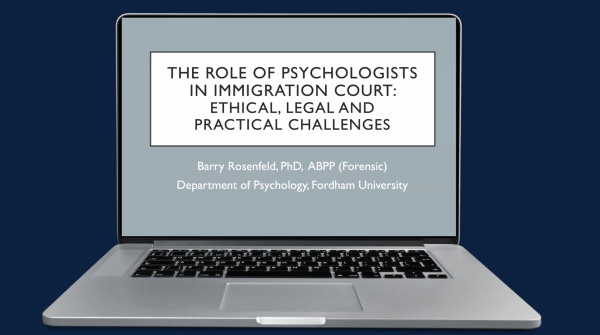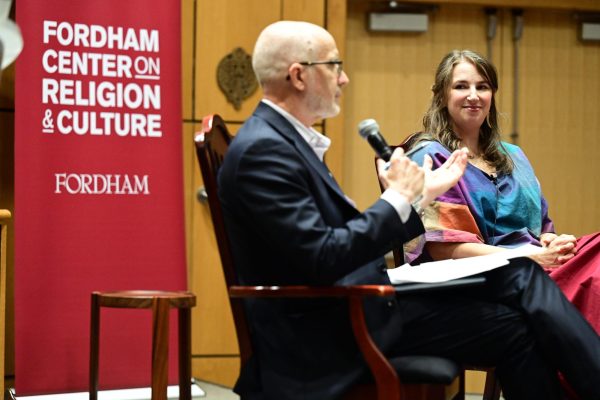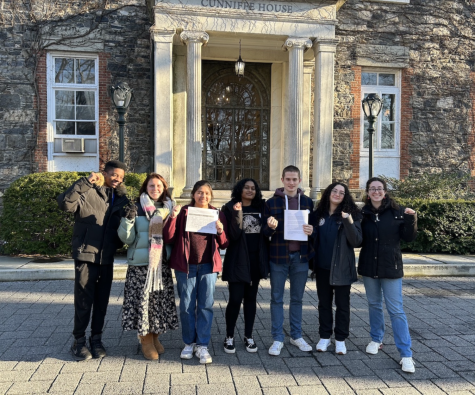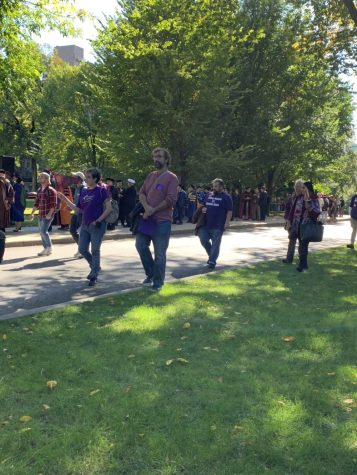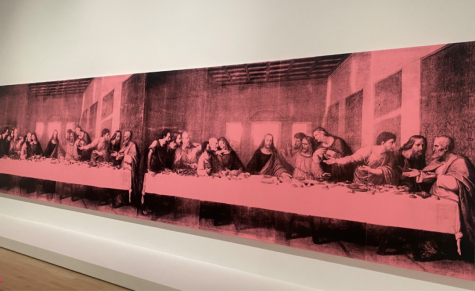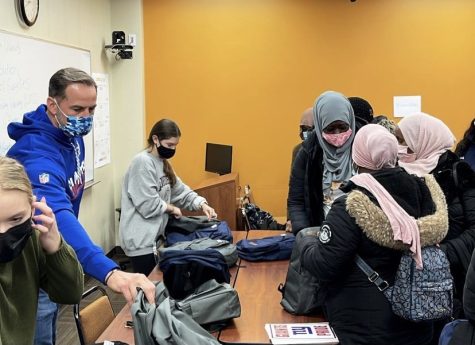Fordham Professor Facilitates Discussion With Claudia Rankine
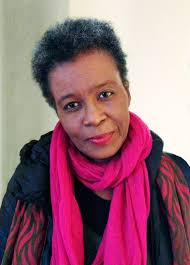
“In Conversation with Claudia Rankine and Laurie Lambert,” presented by The Bronx is Reading, centered around Rankine’s latest work “Just Us: An American Conversation” (Photo Courtesy of Wikipedia).
Laurie Lambert, an associate professor in the African and African American history department at Fordham, engaged in conversation with New York Times best-selling author, poet and Bronx native Claudia Rankine this past Wednesday. The event, “In Conversation with Claudia Rankine and Laurie Lambert,” was presented by The Bronx is Reading and sponsored by Fordham University.
Rankine’s most recent work, “Just Us: An American Conversation” (Graywolf, 2020), is a collection of essays, poems and images that tackles how white supremacy permeates aspects of everyday life. Central to the conversation on Wednesday night were the implications of the issues tackled in Rankine’s book.
Lambert led the discussion, asking Rankine to talk about how the book is introspective while bringing outside forces into the conversation.
“The text operates almost like a deep inquiry into the self,” said Lambert. “You ask yourself, ‘Why does this bother me?’ … It highlights the work Black people are doing before and after an experience with white people.”
In response, Rankine said that the book’s structure is essential in demonstrating the penetrating effects of white supremacy. Rankine’s essays describe her personal encounters with racism that bothered her. She discloses the conversation and her inner thoughts and reflections to convey a complete picture of the ramifications of racism.
“The way to show how racism only happens when white people are in the room or institution is to narrate the encounter with an interior space so that we can see what is being said, but also the internal effect,” she said.
Rankine explained her thorough writing process of “Just Us.” After writing a draft of a conversation and her reflections on it, Rankine would show the draft to a psychiatrist and include their thoughts. Then, she would send the draft to a fact-checker, who would confirm whether what she was saying was true. Rankine writes how fact-checking helped trace statements back to their historical ties.
“We tracked the statements back into the sociology and history so we could look at how simple exchanges actually have roots in history and pedagogy and even sometimes visually,” Rankine said.
The final step was to send the essay back to the person with whom she had the conversation. She offered them the chance to write a response that would be published unedited in the book.
Most of the conversations published in “Just Us” are those with close friends. Rankine said she encourages having these difficult conversations with people who are willing to take part in productive discussions.
“I’m not advocating these kinds of interactions with anyone. I am talking about people who are willing to engage with you, people who you want to build a world with,” she said.
Rankine made it clear that productive conversations do not have to bring two people into total agreement.
“‘Just Us’ is not about how to get white people and Black people on the same page, it is about how to negotiate that we are not on the same page,” she said.
Rankine did not shy away from how uncomfortable and painful disagreements with friends can be. In “Just Us,” she writes of a play she attended with a white friend. In the play’s finale, all the white people in the audience were called up to the stage. Rankine was surprised when her friend did not participate because the friend simply did not want to.
Rankine said this indifference is harmful to both Black and white people. She said she hopes “Just Us” will show white people how the effects of racism go beyond people of color.
“I think there are ways in which conversations about race have been located in the pain of Black people as if inequity and violence in our society only hurt Black people when in fact it hurts the entire country,” she said.
She added that anti-racist work is beneficial to everyone because it creates a healthy and equitable society. She encouraged people who claim to be anti-racist to see their work as helpful for themselves.
Rankine emphasized the importance of speaking up, despite the difficulty and awkwardness. She condemned the false sense of civility that dissuades people from calling out racism.
“Socialization is civility and silence. You don’t want to say something that makes them uncomfortable,” she said.
This socialization silences those experiencing oppression so that the oppressor feels more comfortable. This blatant identification of both structural and personal manifestations of racism is necessary for all those who are committed to anti-racism work, said Rankine.
“It’s not about being an ally, It’s about being accountable to the world and spaces we live in,” said Rankine. “The reason we need to call [racism] out is so that it normalizes it.”
To create a space where allyship and anti-racism can flourish, Rankine said that these difficult conversations are necessary. She said that since the world has been shaped by white supremacy, all people share a deep understanding of it, despite their race.
She said anyone who is willing to acknowledge the existence of white power and is open to being corrected can take part in a transformational experience. For this reason, she said she considers the audience of “Just Us” to be anyone with an open mind.
“I think my target audience is anyone who reads the book. I don’t care who you are,” she said. “If you feel like it moves you into areas of thought in a complex way, then you are my reader. I don’t think of audience as a group. I think of audience as an active thing.”
Although the conversation delved into many serious and pertinent topics, both Lambert and Rankine discussed experiences of comfort and joy. They touched on the support felt within Black communities and their shared love of reading.
When asked about growing up in the Bronx, Rankine recalled trips to the library where she would bring two grocery store bags to fill with books.
“I went home and I pretended to my mother that the books had been assigned by [my] school,” she said. “Cause I would be up at one in the morning reading ‘Little Women’ and she’d be like, ‘What kind of school gives you homework until one in the morning?’ And that’s how I read.”
In addition to her most recently published collection of poetry “Just Us: An American Conversation,” Rankine is the author of five other collections of poetry. Her bestselling book-length poem about race, “Citizen: An American Lyric” (Graywolf, 2014), won the NAACP Image Award and was selected as an NPR Best Book of 2014.
Aside from poetry, Rankine is an accomplished playwright and editor who has written three plays. She is also the founder of The Racial Imaginary Institute (TRII), an interdisciplinary collaborative engaging the subject of race. TRII is made up of artists, organizers and writers who are committed to confronting the realities of race.
Rankine has received several awards and honors throughout her career, including the Bobbitt National Prize for Poetry, the Poets & Writers’ Jackson Poetry Prize and fellowships from the MacArthur Foundation, the Guggenheim Foundation, the National Endowment of the Arts and more. She is currently the Frederick Iseman Professor of Poetry at Yale University.







































































































































































































